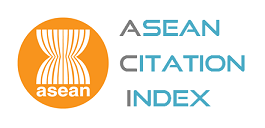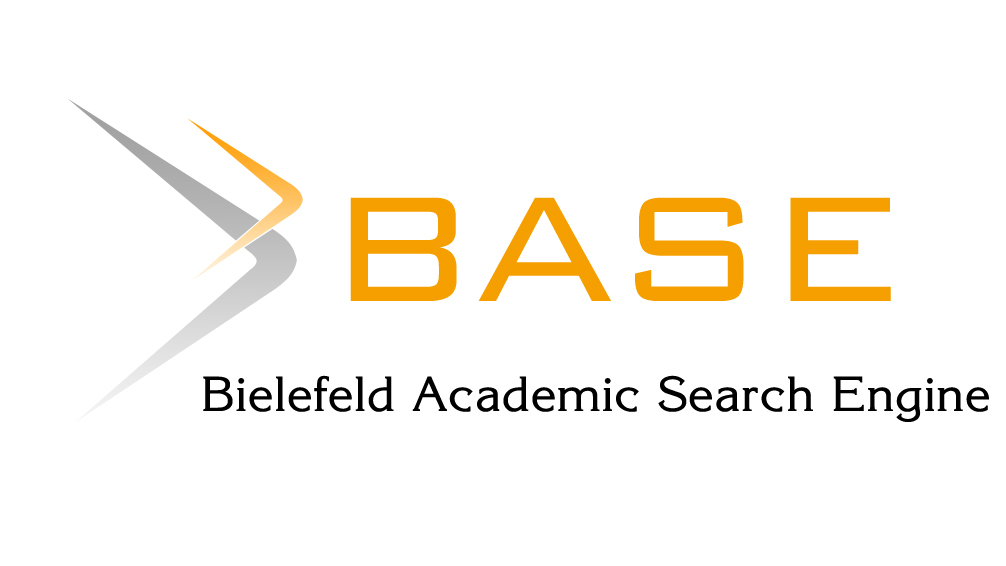THE EFFECTS OF PSYCHOLOGICAL CAPITAL, PERSONALITY ON HOTEL STAFF WORKING ENGAGEMENT AT HO CHI MINH CITY
Abstract
The research was conducted to determine the effects of psychological capital on the personality on hotel staff working in an engagement setting in Ho Chi Minh City, Viet Nam. Data was collected by surveying 378 staffs who are working in hotels in Ho Chi Minh City which are rated 3 stars or more. Descriptive analysis, exploratory factor analysis, and linear regression analysis were used with SPSS 20 statistical package for data analysis. The results show that all psychological capital factors, including hope, efficacy, resilience and optimism have had
positive impacts on hotel staffs’ work ethic. The study also demonstrated the effects of personality on the hotel staffs’ engagement with their work. The research outcomes suggest some managerial solutions to management problems by adapting psychological capital data and to take into consideration the personality of staff to enhance employees working in engagement settings in Ho Chi Minh City.
Downloads
References
relationship between employee satisfaction, employee
engagement, and business outcomes: A meta-analysis.
Journal of Applied Psychology. 2002;87(2):268–79.
[2] Markos S, Sridevi MS. Employee Engagement: The
key to improving performance. International Journal
of Business and Management. 2010;5:89–96.
[3] Ram P, Prabhakar V. The role of employee engagement in work-related outcomes. Interdisciplinary.
Journal of Research in Business. 2011;1:47–61.
[4] Saks A. Antecedents and consequences of
employee engagement. Managerial Psychology. 2006;21(7):600–19.
[5] Schaufeli BW, Bakker AB. Job demands, job resources, and their relationship with burnout and engagement: a multi-sample study. Journal of Organizational Behavior. 2004;25(3):293–315.
[6] Sonnentag S. Recovery, work engagement, and proactive behavior: A new look at the interface between
nonwork and work. Journal of Applied Psychology.
2003;88(3):518–28.
[7] Attridge M. Measuring and Managing Employee
Work Engagement: A Review of the Research and
Business Literature. Journal of Workplace Behavioral
Health. 2009;4(4):383–98.
[8] Simpson RMI. Engagement at work: A review of the
literature. International journal of nursing studies.
2009;46(7):1012–24.
[9] Bakker AB, Albrecht SL, Leiter MP. Key questions
regarding work engagement. European Journal of
Work and Organizational Psychology. 2011;20(1):4–
28.
[10] Avey JB, Nimnicht JL, Pigeon NG. Two field studies
examining the association between positive psychological capital and employee performance. Leadership
& Organization Development Journal. 2010;31:384–
401.
[11] Luthans F, Avolio BJ, Avey JB. Psychological capital questionnaire manual. Menlo Park, CA: Mind
Garden, Inc; 2014.
[12] Luthans F, Youssef CM, Avolio BJ. Psychological
capital: Developing the human competitive edge. Oxford, UK: Oxford University Press; 2007b.
[13] Nguyen DT, Nguyen TMT. Psychological capital,
quality of work life, and quality of life of marketers:
evidence from Vietnam. Journal of Macromarketing.
2012;31(1):82–90.
[14] Stajkovic AD. Development of a core confidencehigher order construct. Journal of Applied Psychology. 2009;91:1208–24.
[15] Luthans F, Youssef CM. Emerging positive organizational behavior. Journal of Management.
2007;33:321–49.
[16] Stajkovic AD, Luthans F. Self-efficacy and workrelated performance: A meta-analysis. Psychological
Bulletin. 1998;124:240–61.
[17] Nguyen TMT. Does psychological capital drive the
effort of marketers? Journal of Economic Development. 2014;220:136–47.
[18] McCrae RR, Costa JTP. Comparison of EPI and
psychoticism scales with measures of the five-factor
model of personality. Personality and Individual
Difference. 1985;6(5):587–97.
[19] Hà Nam Khánh Giao, Lê Trần Tấn Tài. Các nhân
tố tác động đến gắn kết của nhân viên với tổ chức
tại Trường Đại học Tài chính – Marketing. Tạp chí
Nghiên cứu Tài chính – Marketing. 2016;34:61–7.
[20] Hà Nam Khánh Giao, Nguyễn Đặng Huyền Trân. Các
yếu tố ảnh hưởng đến sự gắn kết nhân viên với Trường
Đại học Ngân hàng Thành phố Hồ Chí Minh. Tạp chí
Công Thương – Bộ Công thương. 2017;10:246–51.
[21] Hà Nam Khánh Giao, Hồ Thị Thu Trang. Ảnh hưởng
của văn hóa tổ chức đến sự gắn kết của nhân viên văn
phòng tại tỉnh Bà Rịa – Vũng Tàu. Tạp chí Kinh tế
– Kỹ thuật Bình Dương. 2016;14:39–49.
[22] Hạ Vy. Khách sạn cao cấp tại Thành phố
Hồ Chí Minh vẫn đang thiếu; 2019. Truy cập
từ https://cafef.vn/khach-san-cao-cap-tai-sai-gon-vandang-thieu-20190910151942578.chn [Truy cập ngày
20/02/2020].
[23] Lê Xuân. Savills Việt Nam: Giá phòng khách sạn
Thành phố Hồ Chí Minh cao nhất 5 năm; 2020.
Truy cập từ https://diendandatdai.com/tin-tuc/savillsviet-nam-gia-phong-khach-san-tp-hcm-cao-nhat-5-
nam.html [Truy cập ngày 20/02/2020].
[24] Hà Nam Khánh Giao. Marketing Dịch vụ – Mô hình
5 khoảng cách chất lượng dịch vụ. Hà Nội: Nhà Xuất
bản Thống kê; 2004.
[25] Hà Nam Khánh Giao. Đo lường chất lượng dịch vụ
tại Việt Nam – Nhìn từ góc độ khách hàng. Hà Nội:
Nhà Xuất bản Tài chính; 2018.
[26] Trần Thị Kim Dung. Quản trị nguồn nhân lực. Thành
phố Hồ Chí Minh: Nhà Xuất bản Tổng hợp; 2018.
[27] Lê Cát Vi. Ảnh hưởng của vốn tâm lí, tính cách cá
nhân đến sự gắn kết công việc của nhân viên ngân
hàng tại Việt Nam. Tạp chí Phát triển Khoa học &
Công nghệ: Chuyên san Kinh tế – Luật và Quản lý.
2018;2(21):50–61.
[28] Meyer PJ, Allen JN. A Three-component Conceptualization of Organizational Commitment. Human
Resource Management Review. 1991;1(1):61–89.
[29] Qaisar MN, Mariam S, Ahmad F. Employee Wellness
as Predictor of Productivity from Public Sector Management Perspectives: Conditional Process Analysis.
NUML International Journal of Business & Management. 2018;13(2):104–16.
[30] Malinowski P, Lim HJ. Mindfulness at Work: Positive
Affect, Hope, and Optimism Mediate the Relationship
between Dispositional Mindfulness, Work Engagement, and Well-being. Mindfulness. 2015;6(6):1250–
62.
[31] Cifre E, Alma MS, Rodríguez-Sánchez M. Dancing
between Theory and Practice: Enhancing Work Engagement through Work Stress Intervention. Human
Factors and Ergonomics in Manufacturing & Service
Industries. 2011;21(3):269–86.
[32] Snyder CR. To Hope, to Lose, and Hope Again. Journal of Personal and Interpersonal Loss. 1996;1:1–16.
[33] Adams H, Virgil I, Snyder CR, Kevin LR, Elisa AK,
David RS et al. Hope in the Workplace. Handbook
of Workplace Spirituality and Organizational Performance; 2003. NY Sharpe: Armonk.
[34] Luthans F, Wyk RV, Walumbwa F. Recognition
and Development of Hope for South African Organizational Leaders. Leadership & Organization
Development Journal. 2004;25(6):512–27.
[35] Peterson SJ, Luthans F. The Positive Impact and
Development of Hopeful Leaders. Leadership &
Organization Development Journal. 2003;24:26–31.
[36] Bandura A. Self-efficacy: The Exercise of Control.
New York: Freeman; 1997.
[37] Block J, Kremen AM. IQ and Ego-resiliency: Conceptual and Empirical Connections and Separateness. Journal of Personality and Social Psychology.
2006;70:349–61.
[38] Bonanno GA. Loss, Trauma, and Human Resilience:
Have We Underestimated the Human Capacity to
Thrive after Extremely Aversive Events? American
Psychologist. 2004;59:20–8.
[39] Coutu DL. How Resilience Works. Harvard Business
Review. 2002;80(5):46–50.
[40] Seligman MEP. Learned Optimism. New York:
Pocket Books; 1998.
[41] Seligman MEP. Authentic Happiness: Using the
New Positive Psychology to Realize Your Potential for
Lasting Fulfillment. New York: Free Press; 2002.
[42] Larson M, Luthans F. Potential Added Value of
Psychological Capital in Predicting Work Attitudes.
Journal of Leadership & Organizational Studies.
2006;13(1):45–62.
[43] Bradberry T. The Personality Code. Putnam Adult
Publisher; 2007.
[44] Barrick M, Mount M. Effects of Impression Management and Self-deception on the Predictive Validity of
Personality Constructs. Journal of Applied Psychology. 1996;81:261–72.
[45] McCrae RR, Alik J. The Five-factor Model of Personality Across Cultures. New York: Kluwer Academic
Publisher; 2002.
[46] Hà Nam Khánh Giao, Nguyễn Văn Bình, Nguyễn
Sơn Tùng. Giáo trình Quản trị kinh doanh khách
sạn. Hà Nội: Nhà Xuất bản Thống kê; 2014.
[47] Hà Nam Khánh Giao, Bùi Nhất Vương. Phương pháp
nghiên cứu khoa học trong kinh doanh – Cập nhật
SmartPLS [dành cho Học viên Cao học]. Hà Nội:
Nhà Xuất bản Tài chính; 2019.
[48] Barrick M, Mount M. The Big Five Personality
Dimensions and Job Performance: A Meta-analysis.
Personnel Psychology. 1991;44:1–26.
[49] McCrae RR, John OP. An Introduction to the Fivefactor Model and Its Applications. Journal of Personality and Social Psychology. 1992;60(2):175–215.
[50] Sonnentag S, Mojza EJ, Binnewies C, Scholl A.
Being Engaged at Work and Detached at Home: A
Week-level Study on Work Engagement, Psychological Detachment, and Affect. An International Journal
of Work, Health & Organisations. 2008;22(3):257–
76.
[51] Tổng cục DLVN. Tiêu chuẩn kỹ năng nghề
du lịch Việt Nam: Dự án Phát triển nguồn
nhân lực du lịch Việt Nam; 2016. Available
from: https://nghekhachsan.4irhotel.com/tieu-chuanvtos-ve-phuc-vu-nha-hang.html.
[52] Giao HNK. The Effect of Corporate Culture on
the Staff’s Commitment in CMC Telecome Vietnam. Science Journal of Business and Management.
2019;7(1):23–32.
[53] Hà Nam Khánh Giao, Bùi Thị Thúy An. Ảnh hưởng
của văn hóa doanh nghiệp đến sự gắn bó của nhân
viên Công ty cổ phẩn Thủy sản Sóc Trăng. Tạp chí
Khoa học Trường Đại học Đồng Tháp. 2017;40:36–
40.
[54] Giao HNK, Vuong BN, Tung DD. A Model of
Organizational Culture for Enhancing Organizational
Commitment in Telecom Industry: Evidence from
Vietnam. WSEAS Transactions on Business and
Economics. 2020;17:215–24.
[55] Hà Nam Khánh Giao, Nguyễn Quốc Lộc. Ảnh hưởng
của áp lực công việc và động lực làm việc đến hiệu
quả công việc của nhân viên tại Khách sạn Quê
Hương Liberty. Tạp chí Du lịch Việt Nam. 2016;p.
3–4.
[56] Hà Nam Khánh Giao, Đoàn Thu Hương. Các nhân tố
tác động đến định hướng khách hàng của nhân viên
phục vụ khách sạn tại Thành phố Hồ Chí Minh. Tạp
chí Nghiên cứu Tài chính – Marketing. 2010;1:24–34.
[57] Hà Nam Khánh Giao, Nguyễn Văn Bình. Giáo trình
Nghiệp vụ nhà hàng. Thành phố Hồ Chí Minh: Nhà
Xuất bản Tổng hợp; 2011.
[58] Hà Nam Khánh Giao, Nguyễn Văn Bình. Giáo trình
Nghiệp vụ nhà hàng. Hà Nội: Nhà Xuất bản Thống
kê; 2014.
[59] Giao HNK, Vuong BN, Huan DD, Tushar H,
Quan TN. The Effect of Emotional Intelligence
on Turnover Intention and the Moderating Role of
Perceived Organizational Support: Evidence from the
Banking Industry of Vietnam. Sustainability, MDPI.
Open Access Journal. 2020;12(5):1857–82.









